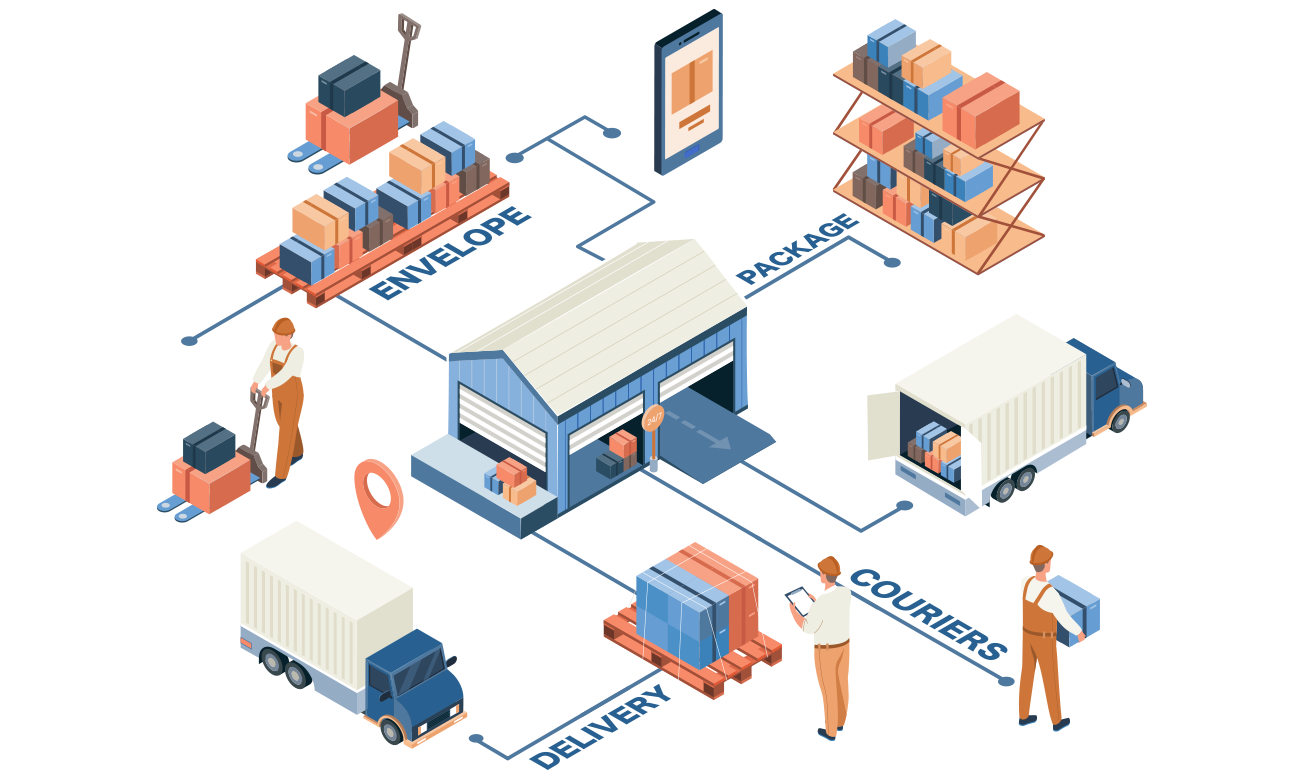October 5, 2023
Developing Extended Supply Chain Networks
The success of a company is often connected to its supply chain. The supply chain serves as the backbone, ensuring timely delivery of goods, reaching new markets, and enhancing overall efficiency. A crucial aspect of modern supply chain strategies is the design and development of a supply chain network. This network enables businesses to widen their reach and maintain a competitive edge.
An extended supply chain network encompasses a diverse range of suppliers, manufacturers, distributors, and logistics partners spread across different locations. By leveraging this network, businesses can efficiently move goods from the production facility to the end consumer.
The last-mile challenge
One of the crucial aspects of an extended supply chain is managing the last mile, which involves the final leg of product delivery. This phase presents unique challenges like route optimization, time sensitivity, and cost-effectiveness. Non-asset-based carriers have emerged as a viable solution to address these challenges by providing transportation services without owning trucks, optimizing operations, and reducing the burden on businesses.
Non-asset-based carriers employ a network of subcontractors and logistics partners, allowing for flexible and scalable transportation solutions. This approach enhances efficiency in last-mile delivery for businesses by leveraging the expertise of these carriers. Moreover, companies can focus on their core competencies while ensuring seamless and cost-effective transportation of goods.
However, maintaining a non-asset-based carrier relationship requires effective collaboration and communication. Establishing clear expectations, utilizing modern tracking and reporting systems, and fostering a solid working relationship is essential for success in this dynamic business model.

Overcoming supply chain disruptions
Recent events have shed light on the possibility that an extended supply chain could be vulnerable. Disruptions like natural disasters, economic instability, or global health crises can severely impact the movement of goods and services. Businesses must incorporate robust risk management mitigation strategies to ensure the continuity of their operations in the face of potential disruptions.
One effective approach is to diversify suppliers to distribute the risk across multiple sources. Additionally, contingency plans could be developed in advance to respond to any disruption. Leveraging advanced technology for real-time monitoring and decision-making can further enhance the effectiveness of risk management strategies.
Non-asset-based carriers offer both challenges and opportunities that highlight the importance of strategic planning and innovative solutions. Therefore, companies must focus on developing a comprehensive risk management framework that can avoid reliance on a single provider.
You can navigate these challenges effectively with Last Mile Logistics and our extended transportation network. In addition, you can unlock new growth avenues and fortify your position in a competitive nationwide market. So please call us if you have an RFP or wish to discuss your options with an experienced pro.


